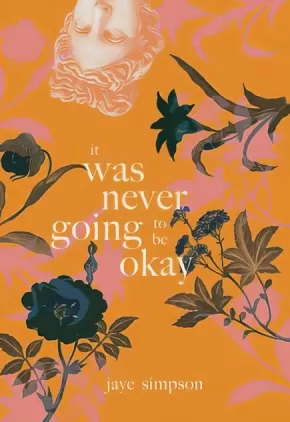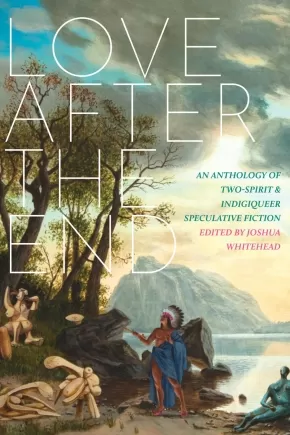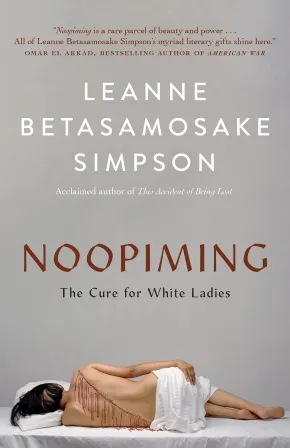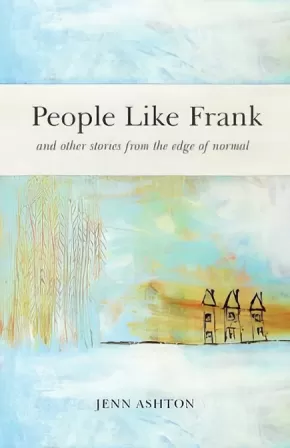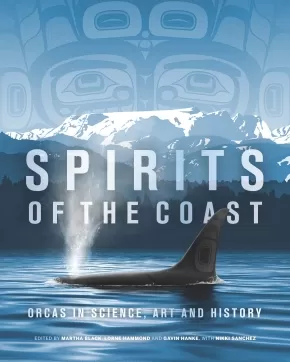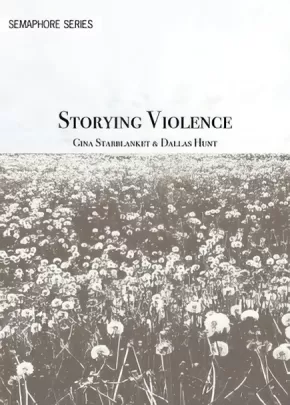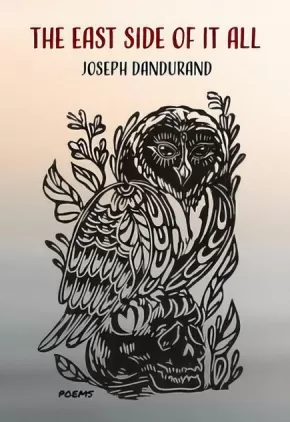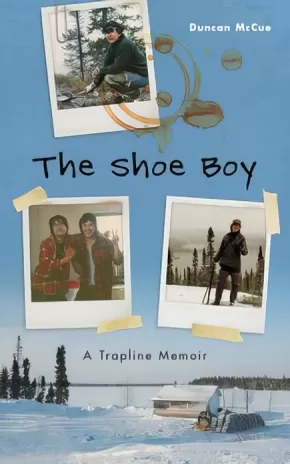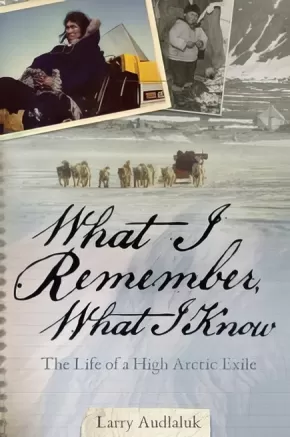2021 - 2022 Selections
Synopsis:
it was never going to be okay is a collection of poetry and prose exploring the intimacies of understanding intergenerational trauma, Indigeneity and queerness, while addressing urban Indigenous diaspora and breaking down the limitations of sexual understanding as a trans woman. As a way to move from the linear timeline of healing and coming to terms with how trauma does not exist in subsequent happenings, it was never going to be okay tries to break down years of silence in simpson’s debut collection of poetry:
i am five
my sisters are saying boy
i do not know what the word means but—
i am bruised into knowing it: the blunt b,
the hollowness of the o, the blade of y
Awards
- 2021 Indigenous Voices Awards winner for Published Poetry in English.
Reviews
"jaye simpson’s it was never going to be okay is a symphony of unrelenting rage and undying hope that beckons to be heard, seen and held with the utmost care. In this stunning debut they speak truths to the complexities of the body, land and memory through an intimately structured and poignant cadence. This collection will leave you longing for more and, in the legacy of trans Indigenous literature, change lives." — Arielle Twist, author of Disintegrate/Dissociate
"jaye simpson marshals a vast economy of images because their subject matter is as large as an entire country, as the colonial past, as structures of oppression and indifference that undermine Indigenous and trans livability. At the level of craft, simpson makes use of the codes of tragedy, polemic, autobiography and the lyric artfully and powerfully. By the book’s end, buoyed by its final beautiful and tender section, a kind of love letter to trans Indigenous peoples, one is called on to build a new world. In this way, jaye simpson's poetry is a vital artifact of a decolonial future!" — Billy-Ray Belcourt, 2018 Griffin Poetry Prize winner for This Wound Is a World
Additional Information
112 pages | 5.50" x 8.00"
Synopsis:
A bold and breathtaking anthology of queer Indigenous speculative fiction, edited by the author of Jonny Appleseed.
This exciting and groundbreaking fiction collection showcases a number of new and emerging 2SQ (Two-Spirit and queer) Indigenous writers from across Turtle Island. These visionary authors show how queer Indigenous communities can bloom and thrive through utopian narratives that detail the vivacity and strength of 2SQness throughout its plight in the maw of settler colonialism's histories.
Here, readers will discover bioengineered AI rats, transplanted trees in space, the rise of a 2SQ resistance camp, a primer on how to survive Indigiqueerly, virtual reality applications, mother ships at sea, and the very bending of space-time continuums queered through NDN time. Love after the End demonstrates the imaginatively queer Two-Spirit futurisms we have all been dreaming of since 1492.
Contributors include Nathan Adler, Darcie Little Badger, Gabriel Castilloux Calderon, Adam Garnet Jones, Mari Kurisato, Kai Minosh Pyle, David Alexander Robertson, jaye simpson, and Nazbah Tom.
Reviews
"Many of the stories offer portraits of a dead Earth from which new life springs, and all are ultimately uplifting, hinting at a way forward through the darkness of the present. Drawing on deep wells of history and experience, these powerful stories are sure to impress." —Publishers Weekly
"The so-called end times feel so perilously close right now. With such a cacophony of anxiety, despair, and cynicism bearing down on us, it is sometimes easy to forget that Indigenous peoples have been here before, and we still remain to uphold our responsibilities to the world and to one another. Our stories guide us forward into an ever-uncertain future, just as they guide us back home. And as editor Joshua Whitehead affirms in the introduction, Love after the End is a book we need right now - and well beyond the now. The stories here are difficult, they're beautiful, they're hilarious and sad and frightening and hopeful. But more than all of that, they guide us back to ourselves and to our relations on a shimmering trail of song and stardust. The two-spirit visionaries in this collection remind us in so many ways that the world is a wounded relative in need of healing, and that to abandon her in this time of trial is to betray the sacred bonds of kinship that we were meant to carry with courage and compassion. I am grateful beyond words that this book is in the world, and grateful to the writers, artists, and editor for the gift of (re)imagining futures where Indigenous love, liberation, and laughter flourish far beyond the settler imaginary. —Daniel Heath Justice, author of Why Indigenous Literatures Matter
"Each of these smart, stunning, imaginative stories has not only fuelled my imagination but also filled my heart, reminding me how dramatically different it is to experience work written with absolute love. Reading Love after the End is like being handed a glass of fresh water in the middle of the desert." —Alicia Elliott, author of A Mind Spread Out on the Ground
Additional Information
192 pages | 5.80" x 9.00"
Synopsis:
Award-winning Nishnaabeg storyteller and writer Leanne Betasamosake Simpson returns with a bold reimagination of the novel, one that combines narrative and poetic fragments through a careful and fierce reclamation of Anishinaabe aesthetics.
Mashkawaji (they/them) lies frozen in the ice, remembering a long-ago time of hopeless connection and now finding freedom and solace in isolated suspension. They introduce us to the seven main characters: Akiwenzii, the old man who represents the narrator’s will; Ninaatig, the maple tree who represents their lungs; Mindimooyenh, the old woman who represents their conscience; Sabe, the giant who represents their marrow; Adik, the caribou who represents their nervous system; Asin, the human who represents their eyes and ears; and Lucy, the human who represents their brain. Each attempts to commune with the unnatural urban-settler world, a world of SpongeBob Band-Aids, Ziploc baggies, Fjällräven Kånken backpacks, and coffee mugs emblazoned with institutional logos. And each searches out the natural world, only to discover those pockets that still exist are owned, contained, counted, and consumed. Cut off from nature, the characters are cut off from their natural selves.
Noopiming is Anishinaabemowin for “in the bush,” and the title is a response to English Canadian settler and author Susanna Moodie’s 1852 memoir Roughing It in the Bush. To read Simpson’s work is an act of decolonization, degentrification, and willful resistance to the perpetuation and dissemination of centuries-old colonial myth-making. It is a lived experience. It is a breaking open of the self to a world alive with people, animals, ancestors, and spirits, who are all busy with the daily labours of healing — healing not only themselves, but their individual pieces of the network, of the web that connects them all together. Enter and be changed.
Reviews
"Noopiming is a rare parcel of beauty and power, at once a creator and destroyer of forms. All of Leanne Betasamosake Simpson’s myriad literary gifts shine here — her scalpel-sharp humour, her eye for the smallest human details, the prodigious scope of her imaginative and poetic generosity. The result is a book at once fierce, uproarious, heartbreaking, and, throughout and above all else, rooted in love.” — Omar El Akkad, bestselling author of American War
"Noopiming is a novel that is as philosophically generative as it is stylistically original. It begins with someone who is frozen in a lake, waiting, and from whom we learn that: ‘being frozen in the lake is another kind of life.’ Leanne Betasamosake Simpson’s expansive work explores the indivisibility of beings — old woman, old man, tree, caribou, stone, ice, spirit, geese, the brain, and more, all watching, grieving, thinking, acting, and listening amidst the ongoing and quotidian urgencies of capital. They are sleepless, ceaseless, trying to alter and to recode the world of consumerism, and their survival means that they must daily and collectively reconstruct existence in the city and its coterminous forests. Noopiming is far ahead of us in so many registers of story, language, and worldview; its cumulative effect is a new cosmography.” — Dionne Brand, award-winning author of Theory
"This imaginative book is what would happen if we gave pen and paper to the deepest, most secretive parts of ourselves. Down to the fibres, down to each breath, Leanne Betasamosake Simpson dares to not only explore the humanity of a character, but the humanity of the parts that make us whole, in a world running on empty.” — Catherine Hernandez, bestselling author of Scarborough
"Leanne Betasamosake Simpson’s Noopiming once again confirms her position as a brilliant, daring experimentalist and a beautiful, radical portraitist of contemporary NDN life. The prose hums with a lovingness that moved me to tears and with a humour that felt plucked right out of my rez adolescence. The chorus of thinkers, dreamers, revolutionaries, poets, and misfits that Simpson conjures here feels like a miracle. My heart ached and swelled for all of them. What I adored most about this book is that it has so little to do with the white gaze. Simpson writes for us, for NDNs, those made to make other kinds of beauty, to build other kinds of beautiful lives, where no one is looking. Noopiming is a book from the future! Simpson is our much-needed historian of the future!” — Billy-Ray Belcourt, award-winning author of This Wound is a World and NDN Coping Mechanisms
"How is it that Leanne Betasamosake Simpson’s fiction can feel both familiar and warm like old teachings and absolutely fresh and brand new? Is it even fiction? Noopiming seems to exist somewhere in the in-between, with all the best parts of poetry and story. As always, I am in awe of Leanne Betasamosake Simpson, prolific in every way.” — Katherena Vermette, bestselling author of The Break
Additional Information
368 pages | 5.50" x 8.50"
Synopsis:
On the edge of normal, challenges take many forms — the everday can be an adventure and the ordinary a triumph.
A young woman in a group home investigates a mysterious piece of knitting. An obsessed bag boy does grim battle with a squirrel. A woman, an asparagus bag and a garbageman have a tumultuous short-term relationship. Otherwise unremarkable achievements become epic on the edge of normal.
This uplifting collection explores the world through the eyes of protagonists whose perspectives are informed by their unique circumstances. Some are struggling with physical challenges while others seek to overcome psychological barriers. Far from being defined by their limitations, these characters revel in achievements others take for granted and find wonder in unexpected places. By celebrating the private triumphs of people who are all too often dismissed, Ashton reminds us all of our own humanity.
Additional Information
200 pages | 5.50" x 8.00"
Synopsis:
An insightful collection exploring the plight, past and promise of the orca, powerful symbol of BC’s wild coast and apex predator of all oceans. Spirits of the Coast brings together the work of marine biologists, Indigenous knowledge keepers, poets, artists and storytellers, united by their enchantment with the orca. Long feared in Western cultures as “killer whales,” and respected and honoured by Indigenous cultures as friends, family or benefactors, orcas are complex social beings with culture and language of their own. With contributors ranging from Briony Penn to David Suzuki, Gary Geddes and Michael Nicoll Yahgulanaas, this collection brings together diverse voices, young and old, to explore the magic, myths, and ecology of orcas. A literary and visual journey through past and possibility, Spirits of the Coast illustrates how these enigmatic animals have shaped us as much as our actions have impacted them, and provokes the reader to imagine the shape of our shared future.
Educator Information
Includes Indigenous and non-Indigenous contributions.
Recommended in the Canadian Indigenous Books for Schools 2020/2021 resource list for grades 9 to 12 for English Language Arts, Law, Social Studies, Social Justice, Science.
Additional Information
192 pages | 8.00" x 10.00"
Synopsis:
In August of 2016, Cree youth Colten Boushie was shot dead by Saskatchewan farmer Gerald Stanley. Using colonial and socio-political narratives that underlie white rural settler life, the authors position the death of Boushie and trial of Stanley in relation to Indigenous histories and experiences in Saskatchewan. They point to the Stanley case as just one instance of Indigenous peoples' presence being seen as a threat to settler-colonial security, then used to sanction the exclusion, violent treatment, and death of Indigenous peoples and communities.
Additional Information
120 pages | 5.00" x 7.00"
Synopsis:
The East Side of It All draws on Joseph Dandurand’s first-hand experiences of life as a drug user and single-room occupant in Vancouver’s Downtown Eastside, and of the ongoing process of healing through reconnection with family, the natural world and traditional Indigenous (Kwantlen) storytelling. His voice is lyrical yet intimate, obscured yet sitting with you at the kitchen table having a cigarette. The East Side of It All is the journey of a broken man who finally accepts his storytelling gift and shares with the world his misery, joy and laughter.
Additional Information
96 pages | 5.50" x 8.00"
Synopsis:
At the age of seventeen, an Anishinabe boy who was raised in the south joined a James Bay Cree family in a one-room hunting cabin in the isolated wilderness of northern Quebec. In the five months that followed, he learned a way of life on the land with which few are familiar, where the daily focus is on the necessities of life, and where both skill and finesse are required for self-sufficiency.
In The Shoe Boy, that boy – Duncan McCue – takes us on an evocative journey that explores the hopeful confusion of the teenage years, entwined with the challenges and culture shock of coming from a mixed-race family and moving to the unfamiliar North. As he reflects on his search for his own personal identity, he illustrates the relationship Indigenous peoples have with their lands, and the challenges urban Indigenous people face when they seek to reconnect to traditional lifestyles.
The result is a contemplative, honest, and unexpected coming-of-age memoir set in the context of the Cree struggle to protect their way of life, after massive hydro-electric projects forever altered the landscape they know as Eeyou Istchee.
This memoir will be of interest to readers of all ages who want to know more about the interplay of traditional and contemporary Indigenous lifestyles, the challenges of identity for First Nations youth, and the relationship Indigenous peoples have with their land.
Reviews
"Frank, funny and evocative, The Shoe Boy deftly entwines the challenges of identity for First Nations youth, the sexual frustration and hopeful confusion of the teenage years, and the realities of living in an enduring state of culture shock." — CBC Books
"The Shoe Boy is a valuable read and will enrich anyone who tunes in to CBC Radio One on Sunday afternoons, as McCue establishes his voice in the conversation of Canada.— Thomas Billingsley, Globe and Mail
Educator Information
Related Topics: Biography, Memoirs, and Letters; Canadian Studies; Indigenous Studies.
Recommended in the Canadian Indigenous Books for Schools 2020/2021 resource list for grades 9 to 12 for English Language Arts and Social Studies.
Caution: mature language, references to sex, alcohol, and suicide.
Additional Information
88 pages | 5.00" x 8.00"
Synopsis:
Larry Audlaluk has seen incredible changes in his lifetime. Born in northern Quebec, he relocated with his family to the High Arctic in the early 1950s. They were promised a land of plenty. They discovered an inhospitable polar desert.
Sharing memories both painful and joyous, Larry takes the reader on a journey to the Arctic as his family struggles to survive and new communities are formed. By turns heart-wrenching and humorous. Larry tells of his journey through relocation, illness, residential schooling, and the encroachment of southern culture.
Excerpt from What I Remember, What I Know
Many stories have been written about how Inuit families were relocated to the High Arctic. The one most written about is economic opportunity. The other is sovereignty. The writers are always careful to use the word "claims" when they're talking about sovereignty, as if to make our claims untrue. The story is long, complicated, and documented by various groups, besides the official records. It has been told from so many angles and moods, from social and political perspectives. I will tell you the story of my family's relocation from personal experience.
Additional Information
300 pages | 6.00" x 9.00"

